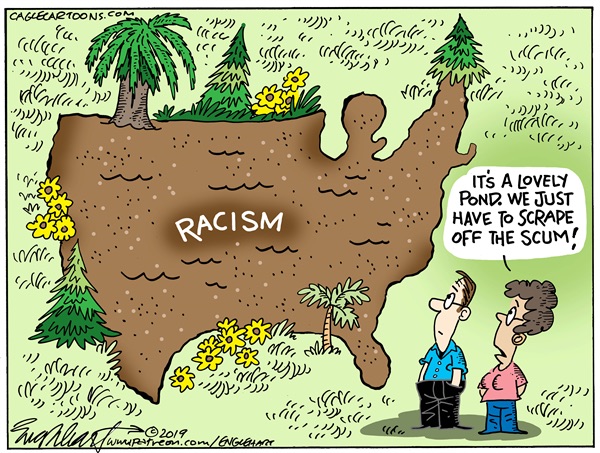Supermarket Lines Are Far from Totalitarianism
Intolerance Puts Us All at Risk

As COVID-19 continues its devastating and lingering spread around the world, we are already experiencing the harsh impact of an economic shutdown that is saving lives but killing jobs. Both blows have contributed to a climate of fear that is sadly stressing the limits of civility.
In a climate of fear, truth is often a casualty. Anxiety regarding the lack of information about virus transmission, effective treatment, and mortality risk has led to an alarming spread of misinformation, efforts to blame others, and even aggression.
We at the Anti-Defamation League are used to seeing this kind of behavior in extremists who latch onto untruths and conspiracy theories to counter their fears of living amidst a more diverse population. Xenophobia and scapegoating of marginalized communities is sadly a consistent historical response to widespread illness, and we are indeed seeing a rise beyond the usual quarters in the targeting and harassment of Asian and Jewish communities — particularly online.
There is another alarming trend, however, of extremism working its way into the mainstream. The combination of crisis-related anxieties and a politically polarized election cycle is resulting in disturbingly extreme rhetoric.
An example is the recent opinion piece by local newspaper owner and publisher Wendy McCaw calling elected officials “tyrants” and suggesting that government policies resulting in lines outside supermarkets are “not that far away” from “turn[ing] us into the Soviet Union or Nazi Germany.” California’s social distancing restrictions — designed to prevent our most vulnerable from the spread of a life-threatening pandemic — are, by any rational measure, very “far away” from the governmental deprivations of life and liberty in the former Soviet Union and the murderous atrocities of Nazi Germany. To suggest otherwise demeans the victims of those regimes, the victims of civil rights violations in our own country, and the sacrifices of those who fought for the rights we all enjoy today.
Similarly, elected officials exercising authority historically confirmed by courts to impose reasonable restrictions on our individual rights in order to protect the public health is far from tyranny. It is important to question whether our elected officials are adequately informed, whether they are honorably motivated, and whether their regulations are reasonable, but to liken them to murderous regimes and unchecked dictators is unwarranted and disingenuous. The more such questioning is backed by facts, the greater value it will provide.
This publisher’s rhetoric is protected speech, but it is speech more likely to sow hate than to change minds — it is fear mongering (an accusation she makes of others in her own piece). Her language feeds into more traditionally extremist conspiracies that the government is working against us, that our public institutions cannot be trusted nor can elected officials with whom we might disagree. When speech like this goes unchecked, particularly from those with prominent platforms, it tends to become “normalized” and more widely accepted. We have all seen these beliefs turn into action in the form discrimination, hate, and injustice. The brunt of this destructive pattern tends to fall on marginalized communities, including African-Americans and Latinx, who are also bearing a disproportionate impact of the current heath and financial crisis.
Extreme rhetoric is detrimental from any direction. Dehumanizing references to leaders or others as “monsters” or “evil” has the same negative impact regardless of where it comes from on the political spectrum. If others are somehow less than human, the message is that we can treat them less humanely. The League’s motto for more than a century has been that if we tolerate anyone being treated inhumanely, we are all at risk.
What we need as a civil society during this global pandemic, is accurate information, fact-based understanding, precise language, resistance to fear, and the strengthening of our communities.
This is not the first virus to stress and test the line between individual liberty and government authority — an issue likely again to be resolved with due process in our courts of law. In the meantime, it is our hope that we all can agree that the best way for those with a politician’s podium, a printing press, or even just a point of view, to express their passion and patriotism is to do so while modeling civil discourse.
Dan Meisel is the regional director for the Anti-Defamation League Santa Barbara/Tri-Counties.



